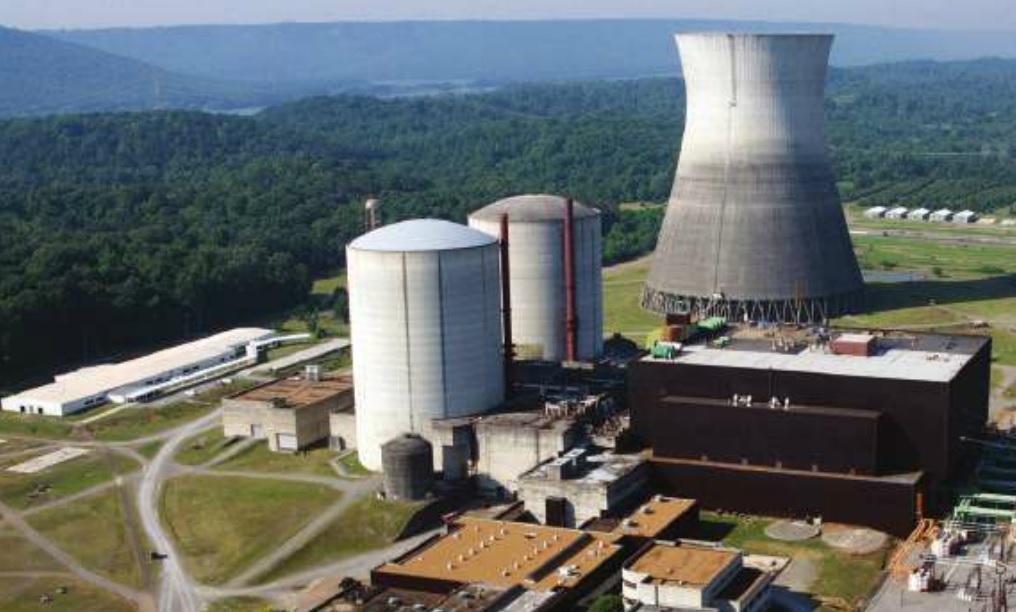
Uganda, Russia reach understanding to harness huge Uranium deposits to produce thousands of mega watts from nuclear energy
It’s now official; Uganda’s plan to develop nuclear as a source of electricity is on course. On Oct. 13, a Russian government delegation was in Uganda to meet President Yoweri Museveni. The delegation comprised top officials from Rosatom State Atomic Energy Corporation, which was led by Viktor Polikarpov, the firm’s regional vice-president for Sub-Saharan Africa.
Both parties confirmed a willingness to start cooperation in the “peaceful use of nuclear power” and signed a framework memorandum of understanding, with the Ministry of Energy and Mineral Development signing on the behalf of Uganda. Effectively, the country has made a giant step towards nuclear power development. Should the talks materialise, co-operation between the two countries will see Uganda gain expertise so as to realize nuclear power development.
President Museveni, who is a strong advocate of industrialization and value addition to Uganda’s mineral resources, said he supports the development of nuclear power in the near future and emphasised the importance of professional training of Ugandan nationals in this sphere.
A government technical team in energy development is set to travel to Russia in the next couple of months to have a firsthand experience of the country’s nuclear power generation plants before the two States sign a final memorandum of understanding for nuclear energy production on Ugandan soil.
Indeed, some of the government officials that are privy to negotiations told The Independent that Uganda is not only engaging Russia on nuclear power generation but also using nuclear in cancer treatment, agriculture and research.
At the October meeting in Kampala, Alexey Volin, the Russian deputy minister for communication and mass media, said Russia wants to see, among other things, “the construction of a lot of nuclear plants because you need a lot of energy.”
Rosatam, the Russian State atomic energy corporation, among others, runs Uranium extraction and production, nuclear power generation, nuclear fuel, nuclear weapons and nuclear safety activities in Russia and globally.
A number of other African countries have shown interest in working with Rosatam to develop their nuclear potential. They include Ghana, Nigeria, Egypt, Tunisia, Morocco, Algeria and Kenya.
According to the government’s national development blueprint; Vision 2040, Uganda intends to use its uranium reserves to generate electricity. The blueprint identifies energy as a major resource that the government is banking on to drive its industrialisation programme.
Uganda currently generates just over 800MW of electricity, but projections show that if development objectives are to be achieved by 2035, Uganda will need a generation capacity totaling up to 40,000MW. This can only be achieved with substantial investment in nuclear power, which is produced by reacting Uranium. Indeed, if the government were to add nuclear power to its energy mix, it would ramp up its electricity generation by up to 24,000MW.
An airborne geophysical survey done by the Ministry of Energy and Mineral Development with support from the World Bank, hinted that the country has about 52,000 sq km of uranium prospects. But, the exact amount of uranium deposits is still unknown.
At the Mineral Wealth Conference held in Kampala last month, Edwards Katto, the head of the Directorate of Geological Survey and Mines, told prospective mining executives that that Uganda’s uranium resources are ready for exploitation.
In 2002, Parliament approved the principles for the peaceful use of nuclear power. In 2008, the Atomic Energy Act was passed establishing the Atomic Energy Council, the national regulator, and the Nuclear Energy Unit (NEU) within the ministry of energy and mineral development.
Sarah Nafuna, the head of the NEU, recently told local media that the government has identified sites in Lamwo in northern Ugganda, Mubende in western Uganda, Buyende in the east and Nakasongola in central Uganda for setting up of nuclear reactors and turbines.
She said the government is looking at setting up about 20 nuclear power plants in an ambitious bid to achieve Vision 2040 targets although the current proposal is to start with five plants. It is estimated that Uganda the nuclear power plants will be up and running within the next decade.
Already, NEU has sent at least seven people abroad to undertake specialised training in fields including nuclear science and technology, quantum engineering, international nuclear law and policy and nuclear engineering.
In early 2014, the government signed a five year agreement with the International Atomic Energy Agency for the application of nuclear technologies focusing on Uranium exploration and power.
On the continent, South Africa is the only African nation that has successfully adopted and developed nuclear technology for the past 30 years. The country’s Koeberg Nuclear Power Station produces about 5% of the country’s electricity. Other African countries that are producing uranium are exporting it and Namibia, which exports about 4,000 tonnes, remains the largest producer of uranium on the continent, followed by Niger.
But the big question remains on how Uganda plans to go about getting financing for these multi-billion nuclear reactors. Nuclear energy experts say an average nuclear power station – big enough to produce 1,000MW of electricity – could cost anywhere between $5-10 billion to set up. While some developed countries are gradually decommissioning their nuclear plants citing safety concerns in preference for renewable sources such as wind and solar, others like China and India are building more of them to power their growing economies.
****
editor@independent.co.ug
 The Independent Uganda: You get the Truth we Pay the Price
The Independent Uganda: You get the Truth we Pay the Price



